

I had spent last Saturday with KapitalX’s participants who are mostly young and ambitious. For those who are not aware, KapitalX is Malaysia’s first venture capital talent development programme, organised by Penjana Kapital with its programme partner Sunway iLabs. What I’d observed during their Demo Day, these talents aspire and yearn for better future. They are more confident to look for new or different opportunities and certainly more confident in terms of the purpose they believe they are fulfilling.
And this leads me to wonder why young people are leaving their jobs during the pandemic and choose not to recommit clocking in at all.
This phenomenon is not uniquely experienced by those in their twenties, and what is now referred to as the Great Resignation: they are relocating because remote working makes it possible; they are reconsidering their work-life balance; they are reshuffling priorities and switch careers.

Like 2020, a lot had happened in the year 2007. The internet combined with the arrival of smartphones in 2007 and we began to be defined more by mobility. The iPhone and the rising prominence of Airbnb, Blogger, Facebook, and Twitter opened our eyes to the world and the possibility that we could travel more widely. Cheap travel, smart luggage and international tourism thrived.
It was also the year that Tim Ferris’s best-selling book The 4-Hour Workweek advanced the view that you could work from anywhere and lifted the lid off the formal approach to fixed office life. WeWork arrived in 2010 and Malaysia’s Common Ground was born seven years later. And after the Covid-19 pandemic sparked two years of on-off lockdowns, full mobility gives new ways-to-work model.
Remote working has become the new normal.
But this should not mean working in a vacuum. COVID-19 connected everyone to their mortality and therefore to what they value more in life. Work now must work harder to attract our energy and time. I learned this during the pandemic. I had family members who nearly died because of COVID-19. During those months of lockdown, I re-evaluated my priorities. I am sure most of us did the same. We want every day to be filled not just with mobility and choice but something else too: meaning. Work-related stress and anxiety have become more common as we overcome the challenges that COVID-19 has brought. We’re encouraged to look out for each other in the spirit of #kitajagakita.

At work, more companies prioritise mental wellness and wellbeing of their employees by offering access to assistance programmes. Most of which are powered by start-ups such as mental health platform Thoughtfull.
Employees regardless of their age are now exploring prospects beyond their salaries and support. They want to be welcomed and wanted. Expectations have shifted radically and one-size-fits-all approach to talent retention and development no longer makes the cut. HRTech start-ups that leverage on data begin to take off. Accendo is one such start-up that is now in demand. It digs deeper into how talent is recruited, connects with a company, grows, contributes, and becomes a productive member of the firm.
The pandemic has been hard on all of us, but it also warped our sense of ideal. 2021 was known as the Great Resignation, driven by a mix of people seeking a greater work-life balance, leveraging more flexibility to get career mobility, and seeking something more fulfilling.
Over the past two years, we had to grapple with uncertainty and the turbulence of the pandemic has allowed us to get back to our roots and focus on what really matters to us in our career what is more in life. If 2021 is known as the Great Resignation, perhaps 2022, for some, will become the Great Redefinition.
If we have learned one thing from the compare-and-contrast exercise that the fight against COVID-19 had furnished, it is perhaps the importance of competence and character in combating challenges. If you choose career based on your competence and one that suits your character, you’ll be in good company.

In the 1930s, millions of people lost their jobs, and countless businesses perished due to a global economic collapse. By the end of the fourth decade of the 20th century, the world was on fire as we were at World War II. Almost a century later, the world is facing a similar threat – this time caused by a pandemic called COVID-19. Some would argue that the disease is not much deadlier than any other respiratory illnesses. However, the disease is highly viral and there’s no effective treatment or a functional vaccine to stop the spread of the disease completely. In the year 2020, millions of people around the world lost their jobs. We have also seen some industries crumble under strict lockdown order. This led to world leaders taking extreme measure to help support their nation’s economy. In particular, the Malaysian government had injected 8 fiscal packages (the most in the world in terms of number of COVID-19 stimulus packages) worth RM530 billion.
The global debt in 2021 hit a record of more than US$300 trillion, according to the Institute of International Finance. Many industries and governments were having a tough time implementing anti-pandemic measures because of the long-term implication that it would bring. Some of these decisions (or indecision) led to an inflationary pressure which was discussed in our previous issue. Due to excess liquidity in the capital system, people are buying more which helps stimulate the economy. This leads to higher demand that supply could not cater to as the supply chain is still affected largely due to China’s zero COVID-19 policy.
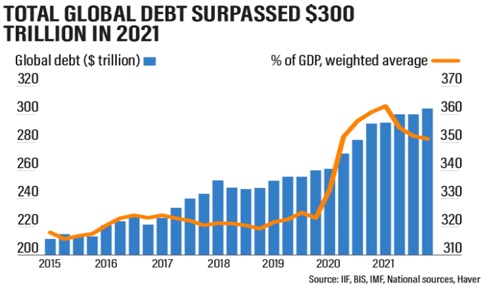
High inflationary pressures prompted the Fed to raise interest rates. Be that as it may, the Fed is still behind the curve in terms of raising rates to cool down the economy. They are expected to raise rates at a steeper pace (Fed just hiked 0.75 percentage point recently – highest in years).
Inflationary pressures, coupled with stagnant wealth/income appreciation, have led to many people globally feeling like they are stuck because their savings are running low and their cost of living is running higher. This results in a slowdown or potentially a sharp drop in the general economic activity, which in turn could limit wage growth and cause job losses even if prices remain high. Whilst the world has now come out of battling the COVID-19 pandemic, there is a new fight on the horizon – in the form of high inflation. Governments all over the world and its central banks are trying to solve this by inflicting some economic pain (in the form of higher interest rates) to alleviate the problem.
It felt like it was just yesterday when the “Great Resignation” was rolling at record rates around the world. Both the number of employees leaving and rate of hiring across the board were soaring. This is mainly fuelled by a wave of new jobs on the back of a strong labour market offering ample amount of job opportunities.
The Great Layoff is in Session
Most corporates, notably, tech corporates have started to feel the heat from rising business costs from high inflation. Tech giants Meta (formerly known as Facebook) and Twitter had recently announced publicly that they are on a hiring freeze while PayPal, the payment giant, has let go dozens of employees. Moreover, Tesla, which has over 100,000 employees globally, is reportedly planning to cut down 10% of its staff after CEO Elon Musk expressed that he has a “super bad feeling” about the economy on Twitter.
With rising interest rates, cost of capital becomes more expensive. Start-ups are finding it hard to raise money from investors, as investors are seeing a gloomy sky in the short to medium term. This has forced start-ups to rethink their cost structure. In the past two months alone, we have seen start-ups such as StashAway and iPrice laying off 14% and 20% of their staff strength respectively and Kaodim going under. Even e-commerce giant Shoppe had recently announced they are laying off half of their headcount in Thailand and will be ceasing its operations in France and its early-stage pilot in Spain.
To sum it up, a total of 137,919 employees and out of that 35,000 workers from tech companies globally have been laid off according to Layoffs.fyi. Whilst these numbers look worrying, there is another side to the coin. There are currently 35,000 talents who have built tech start-ups and corporate tech business units available in the labour market globally. With recent tech talent shortage and general economic activity picking up pace in other parts of the world, we can see many talents joining ranks of start-ups or corporates who have a strong balance sheet and are “gung-ho” on achieving exponential business growth.
The Heat Catches on in Malaysia
Malaysia is not excluded from the global rise in inflation. The Department of Statistics of Malaysia (DOSM) had just announced that food inflation in Malaysia had risen to 5.2% in May 2022, the highest since November 2011. This announcement does not come as a surprise as most Malaysian consumers have felt their purchasing power shrink recently as evidenced by multiple viral posts. Recalling to our last newsletter, naturally, the shrinking purchasing power and erosion of real income is a cause for concern. Perhaps one of the obvious ways to combat this is through earning more income and to do this, one has to secure better employment opportunities. In this economy, this seems to be a tough feat especially with “The Great Layoffs” happening as we speak.
Before we delve further on this topic, perhaps it is best to provide context on the labour market in Malaysia. According to DOSM, there are over 15 million employed persons in Malaysia in 2021. Out of this, 78.5% are employees whilst 3.4% are employers. 64.9% of the workforce in Malaysia are in the services industry followed by 16.6% in manufacturing and 10.3% in agriculture.


Malaysia has 4.45 million skilled workers, 8.69 million semi-skilled workers and the remainder are low-skilled workers. This data coincides with the education attainment by these employed persons – 4.99 million have tertiary education, 8.27 million only attained secondary education whilst 1.29 million employed persons have attained only primary education. Skills-related underemployment in the past 5 years also has shown an increasing trend of 30% in 2016 to 38.7% in 2021.
Combating Talent Woes
What is the significance of these data points? First of all, we can see that Malaysia is highly dependent on services industry, which is also a reflection of why platform economy is thriving here. We can also infer that there are more semi-skilled jobs than skilled ones as evidenced by the skill of employed persons. This also coincides with the increasing trend of skill-related underemployment – 1.93 million persons take up employment that do not match their skills in 2021 compared to only 1.17 million 2016. Whilst this is worrying, the significant jump in underemployment could be a result of the COVID-19 pandemic as many industries were badly hit and many had resorted to take up any employment that they can find, regardless whether it fits their skills.
Underemployment, if left unsolved, could lead to a multitude of issues to individuals, households and community. For example, lower earning potential for individuals suffering from underemployment encourages brain drain and social unrest due to lower purchasing power and skill mismatch. Underemployment also presents higher social expenditures for the government as there are more social benefits required to help fill the income gap.
The median and mean wage for semi-skilled workers as of 2020 are RM1,593 and RM2,007 and the median and mean wage for skilled workers as of 2020 are RM4,011 and RM4,619 respectively. With a shrinking purchasing power, a majority of employed persons and their households will be affected.
This is precisely why the government is working hard to create job opportunities and new industries that could shift Malaysia’s position from a tech consumer market to a tech producer market. Efforts in doing this also includes investing in tech start-ups and investing in tech talent development. In spirit of this, we organised KapitalX, a VC talent development programme. With more investors in the market who understand tech investments, we hope that we can fund more promising tech producers in Malaysia and subsequently create more high skilled jobs in the country.

KapitalX Highlights Thus Far
If you have been following us on LinkedIn, you may have seen posts about KapitalX, a Venture Capital Talent Development Programme co-organised by Penjana Kapital and Sunway iLabs.
We recently admitted Cohort 1 of KapitalX on the 14 May 2022. After 5 weeks of fundamental classes and mentoring sessions, they went on to pitch at a Mock Investment Committee on 18 June 2022.
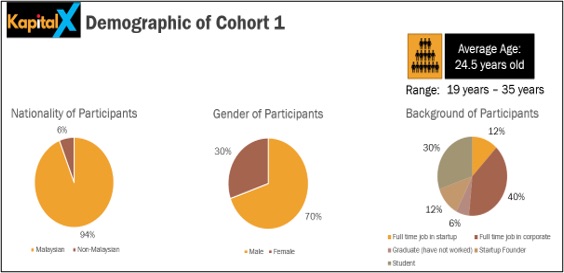
About KapitalX
KapitalX is a 2-month programme that aims to nurture future venture capital talents with necessary skills and know-how from the best venture capital (VC) investors around the globe. The programme aims to create a steady pipeline of junior – mid level VC talent to support the growth of the Malaysian VC ecosystem.
At the application deadline of 30 April 2022, 104 applicants had applied to the programme. Cohort 1 had admitted 32 participants.
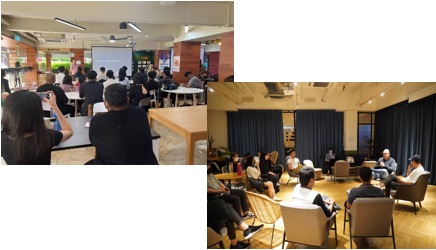
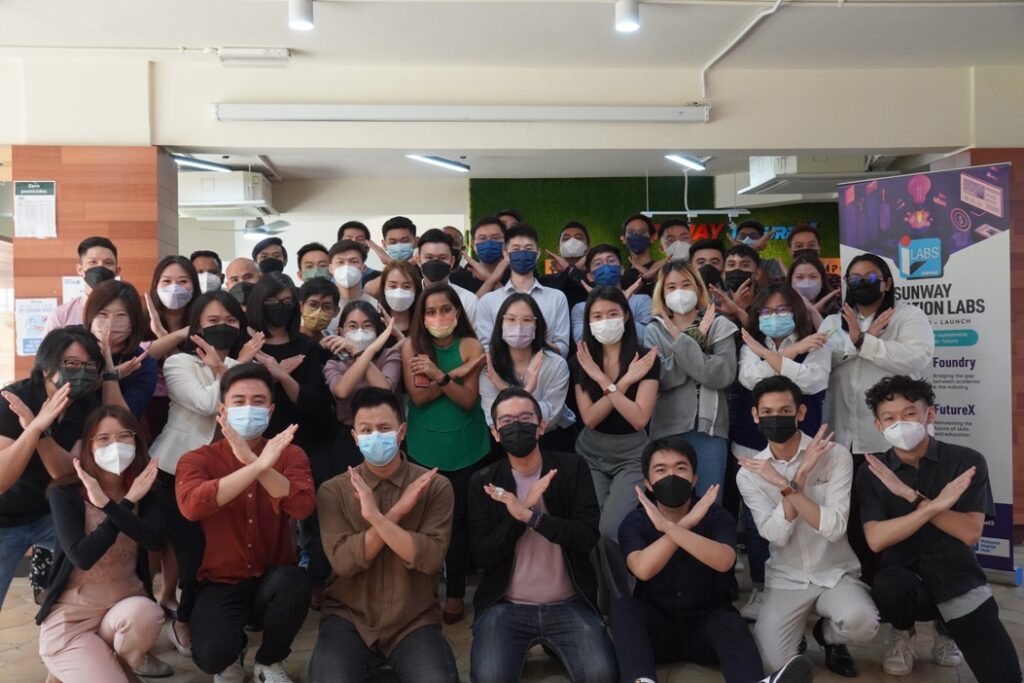
KapitalX Fundamental Classes
Cohort 1 had undergone classes with practicing VCs on VC fundamentals ranging from overview of start-ups, forming investment strategies, deal sourcing, due diligence, and introductions to term sheets, the investment legal process, ESG investing and venture debt. The cohort was divided into 6 teams, of which they were assigned one VC associate mentor and one VC partner mentor each.
The 6 teams started working towards their Demo Day where they were assigned to develop their own investment strategies and pitch an investment proposal to a Mock Investment Committee. After the Demo Day, they will go on a 1-month VC Fellowship where they will learn the day to day of a VC analyst with VC partners of the programme.
KapitalX Demo Day
The Demo Day was attended by over 70 attendees ranging from the participants, VCs and ecosystem partners. We are grateful for the support of the Mock Investment Committee for the Demo Day – Dr. Sivapalan Vivekarajah, Adlin Yusman and SaiKit Ng who offered great insights in evaluating the investment proposal of the participants as well as Aaron Sarma, Anouk Hanafiah and Dr. Melissa Foo for being a part of the panel session.
Although all participants showcased an in-depth understanding of their investment proposal, we had two groups that showed an outstanding performance. Congratulations to team Joint Ventures and AT Capital for taking first place and first runner-up on the Demo Day!
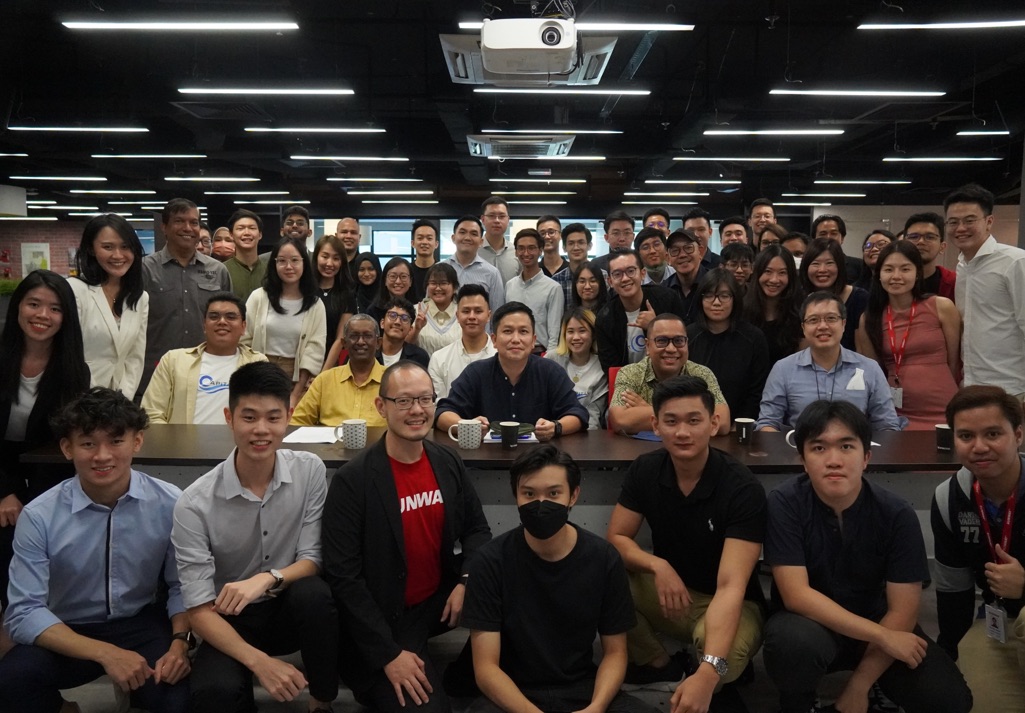
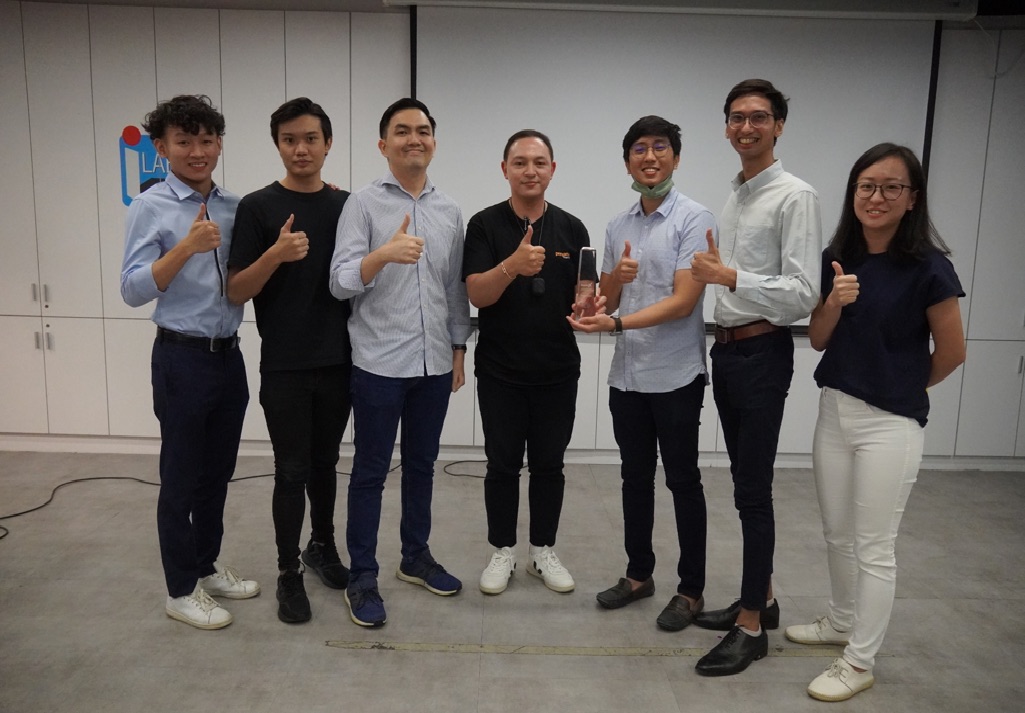
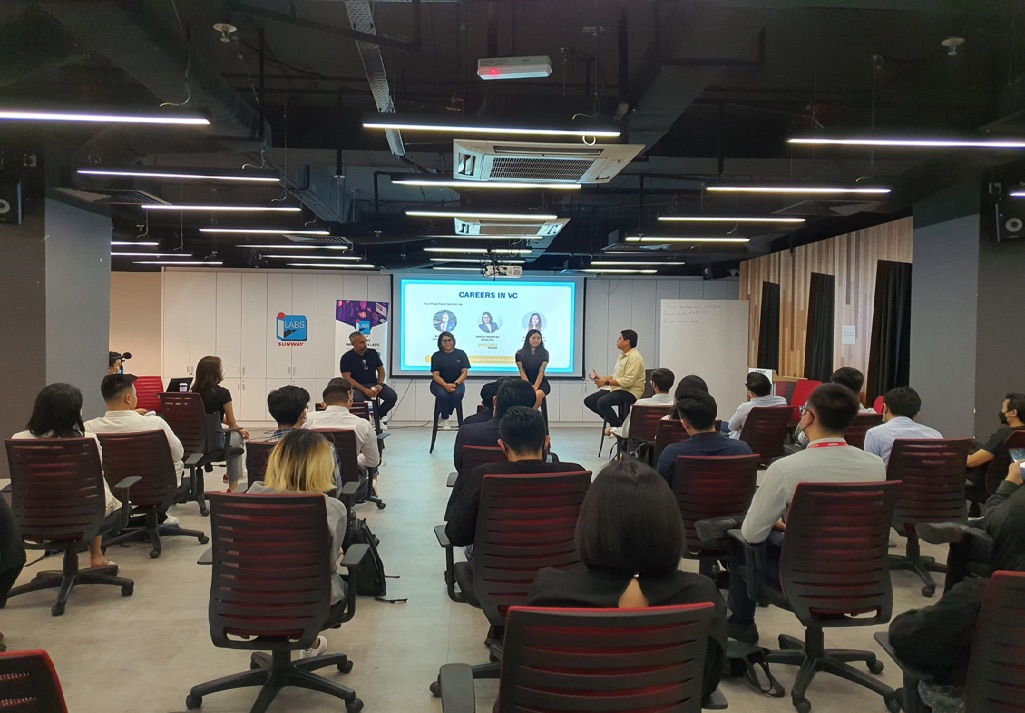
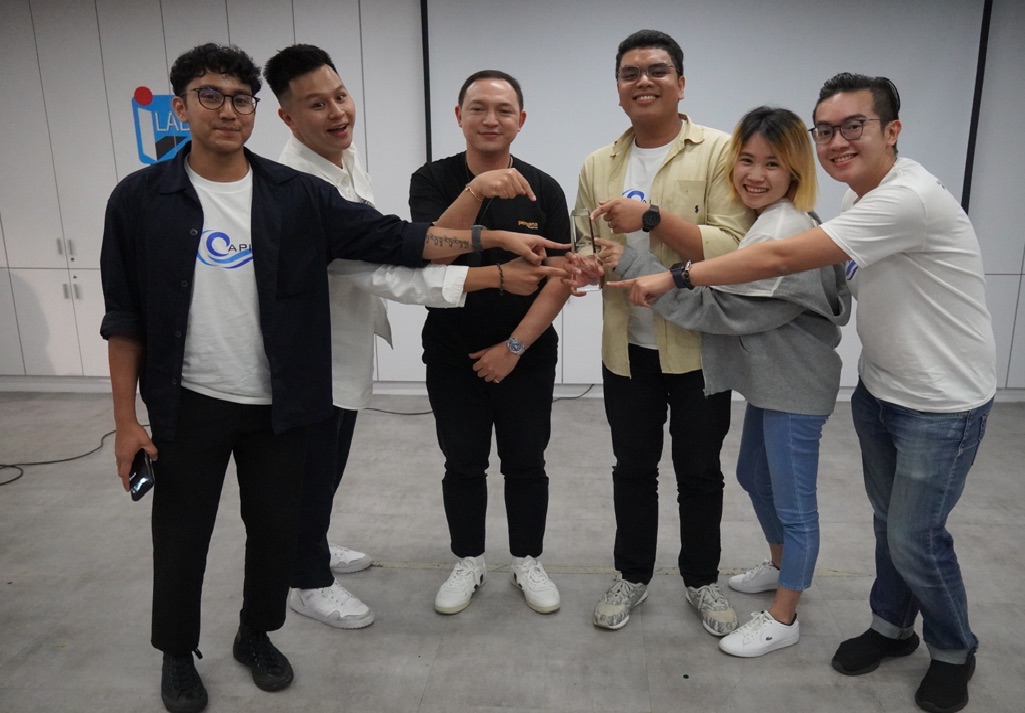
What’s Next?
The Demo Day marks the midpoint of the KapitalX programme. Participants are currently undergoing their VC Fellowships with VC partners as below:


This month edition’s Start-up of the Month features Accendo, a Malaysian HRTech player. We interviewed Sharma Lachu, Founder & CEO, to better understand how Accendo solves the pain points in the employment arena and his take on the current condition of our job market.
1. Please tell us about yourself.
I grew up in a small town in the East Coast of Malaysia (now not so small anymore) Kuantan. I played every sport possible, and got quite serious with football, badminton, cycling at a very young age. I often refer to myself as a failed sports enthusiast but that was what gave me the foundation to many things I do. My football coach very early on inculcated this habit into us. “Today, better than yesterday” he used to say.
I, then, ventured overseas to study. I later joined an organization that specialized in talent measurement, looking at how we measure people holistically and align them to businesses. From this experience, I was exposed to projects globally, which gave me sense of where South East Asia sits against the rest of the world. I decided to bring this exposure and learning to make an impact in workplaces in South East Asia.
2. What is Accendo about?
It’s about “giving people the opportunity to be the best version of themselves at work”. We work more than we do anything else in the world. We spend more time working than we spend time with our family or hanging out with friends or even sleeping. So, if we are able to build a journey that makes work optimal for the individual, the manager and the organization, the overspilling positive effect is priceless.

Founder & CEO
I think there is research showing there is a loss of US$8.4 trillion over the next decade globally because of the suboptimal mismatch of capability within organisations. That’s about US$840 billion per year. More then 10x Malaysia’s estimated total income in budget 2022.
Accendo focuses on understanding people by measuring individuals holistically using deep AI and Machine Learning capabilities, benchmarking against what good is supposed to look like and be able to prescribe for them micro, short-term, medium-term, and long term goals to create a more optimal individual, organization and in a grand scale.
3. How can Accendo help in talent development and talent retention?
We do this by one very simple premise. We want to fit the best person in the best suited role, at the right time. This seems logical but unfortunately, it’s not as easy as it seems to be. We (as humans) generally believe that we are amazing at making decisions. However, this is often not the case. We often fail to make accurate decision because we don’t have the right insights in front of us.
Accendo’s model: Measure, Benchmark, and Prescribe comes to great use for recruitment and developing a journey for one to explore careers.
Talent development is a function of everyday, little things done better – just like my coach used to say. To achieve this, we need to re-think Talent Mobility and how we induce opportunities to infuse crystallised learning (what we have learnt) and turn that into Applied Knowledge (ability to execute effectively what we have learnt).
4. We have heard employers searching for talent and yet we have also heard talent are having issues getting a job. Is there a mismatch on employers and talent? How does Accendo address this issue?
I think for me to answer this question fairly, we must first agree that not all people are “Talents”. In my previous corporate life, my then Chairman used to say “people are not your biggest assets; only the right ones are”.
Secondly, there has been a shift in the power balance of employment. Traditionally, this power was held by the employer. Over the last decade, this pendulum has swung vigorously in the direction of the employee. Organisations that understand this are quickly gaining the competitive advantage. This has given employees the option to choose how they work and engage with the idea of employment.
Skills as a future currency for exchange – this is something Accendo talks about a lot. Jobs and roles are morphing at light speed. As individuals and organisations, Accendo’s view is to find skills alignment rather than job alignment. Aligning an individual’s skill/capability to what skills the job requires will help you understand where the gaps are. There are a lot of people looking for jobs. The reason why there is a mismatch is not all people are able to do the roles advertised.
The above point of view is why the measure, benchmark and prescribe model that we use with TalentPulse is extremely important. You first measure and benchmark your talents against the requirements to identify what good is supposed to look like. Then, look at the gap between where you are now against what is required. Based on this gap, you can make decisions to know what is required to quickly upskill them. If you are hiring an individual with a role misfit and have no plans to quickly upskill them, you are most likely creating a sub-optimal team and organization, hence contributing to the Invisible leakage dilemma.
5. Where do you see Accendo in the next 5 years?
Using deep Machine Learning and AI and combining that with robust behavioural sciences to augment the experiences of Individuals, Managers and Organisations be the best versions of themselves – everyday.
Our aspiration is not a local one, neither is it a regional one. It is a global one. So in the next five years, we want to help thousands of organisations across the globe achieve that same vision by solving the same two things that we always do.
To be able to manage implicit bias and to eliminate invisible leakages.
We are extremely excited to make sure we see this vision become a reality. Equally, we are excited and remind ourselves that while we are always looking to go global, we are draped with the Malaysian flag. We will do our utmost to make that flag proud.
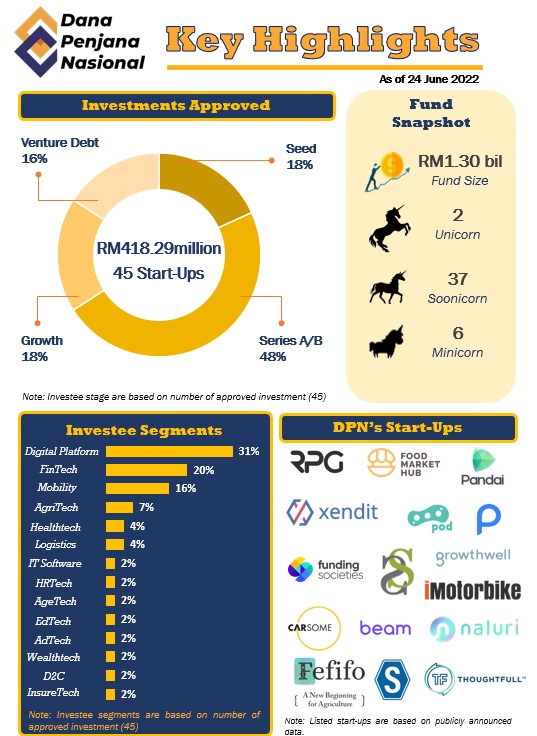
| DISCLOSURES AND DISCLAIMER |
This Newsletter is strictly informational and is issued Penjana Kapital Sdn Bhd (“PKSB”) on the basis that it is only for the information of the particular person to whom it was provided. This document may not be copied, reproduced, distributed or published by any recipient for any purpose unless Penjana Kapital Sdn Bhd’s prior written consent is obtained. This newsletter has been prepared for information purposes only and is not intended as an offer to sell or a solicitation to buy any securities, and/or any other product in Public or Private markets. Penjana Kapital Sdn Bhd is not making any recommendation to buy any securities or other product and the information provided should not be taken as investment advice.
It has been prepared without regard to the individual financial circumstances and objectives of persons who receive it. Penjana Kapital Sdn Bhd has no obligation to update its opinion or the information in this newsletter and Penjana Kapital Sdn Bhd recommends that you independently evaluate particular investments and strategies and seek the advice of a financial adviser prior to entering into any transaction. The appropriateness of a particular investment or strategy will depend on your individual circumstances and objectives. The information herein was obtained or derived from sources that Penjana Kapital Sdn Bhd believes are reliable, but while all reasonable care has been taken to ensure that stated facts are accurate and opinions fair and reasonable, we do not represent that it is accurate or complete and it should not be relied upon as such. All opinions and estimates included in this newsletter constitute our views as of this date and are subject to change without notice.
Penjana Kapital Sdn Bhd is not acting as your advisor and does not owe any fiduciary duties to you in connection with this newsletter and no reliance may be placed on Penjana Kapital Sdn Bhd for advice or recommendations of any sort. Nothing in this newsletter shall constitute legal, accounting or tax advice, or a representation that any transaction or investment is appropriate for you taking into account your investment objectives, financial situation and particular needs, or otherwise constitutes any such advice to you. Penjana Kapital Sdn Bhd makes no representations or warranties, express or implied, with respect to the accuracy of the information or fitness for any particular purpose and does not accept any liability (including but not limited to any direct, indirect or consequential losses, loss of profits and damages) for any use you or your advisors make of the contents of this newsletter or for any loss that may arise from the use of this newsletter or reliance by any person upon such information or opinions provided in the newsletter. This newsletter has been prepared by the analysts of Penjana Kapital Sdn Bhd. Facts and views presented in this newsletter may not reflect the views of or information known to other business units within Penjana Kapital Sdn Bhd. This information herein is not intended to constitute “research” as it is defined by applicable laws. This newsletter is not directed to or intended for distribution to or use by any person or entity who is a citizen or resident of or located in any locality, state, country or other jurisdiction where such distribution, publication, availability or use would be contrary to law or regulation. The information provided in this document has been obtained or derived from sources believed to be reliable. Penjana Kapital Sdn Bhd does not guarantee its accuracy or completeness and does not assume any liability for any loss that may result from the reliance by any person upon any such information or opinion. Such information or opinions are subject to change without notice, are for general information only and is not intended as an offer to sell or a recommendation/ solicitation to buy any securities, foreign exchange or other product.
